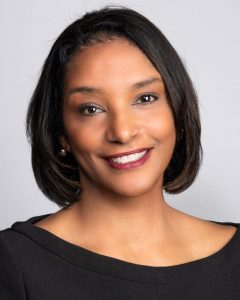VOICES
Untangling 2 important change tools
By Joe McFarland and Nikki Mouton
Categories: Evaluation & impact, ResearchOctober 2018
Vol. 39 No. 5
Read the remaining content with membership access. Join or log in below to continue.
Sed ut perspiciatis unde omnis iste natus error sit voluptatem accusantium doloremque laudantium, totam rem aperiam, eaque ipsa quae ab illo inventore veritatis et quasi architecto beatae vitae dicta sunt explicabo. Nemo enim ipsam voluptatem quia voluptas sit aspernatur aut odit aut fugit, sed quia consequuntur magni dolores eos qui ratione voluptatem sequi nesciunt. Neque porro quisquam est, qui dolorem ipsum quia dolor sit amet, consectetur, adipisci velit, sed quia non numquam eius modi tempora incidunt ut labore et dolore magnam aliquam quaerat voluptatem.
Joe McFarland and Nikki Mouton are coaches of Learning Forward Academy Class of 2020, whose theme is “To infinity and beyond” — a saying from the movie Toy Story. McFarland and Mouton stand with cutouts of two of the movie’s main characters during the Learning Forward Institutes in Portland, Oregon, in July.
Additional Resources
For more information about logic models and theory of change, including examples, check out these resources.
Assessing Impact: Evaluating Professional Learning (3rd edition) by Joellen Killion. Available at the Learning Forward bookstore, lfstage.xyz/store or 800-727-7288.
Logic Models for Selecting, Designing, and Implementing Evidence-Based School Leadership Interventions, published by the RAND Corporation. Available at www.wallacefoundation.org/knowledge-center/Documents/Logic-Model-Evidence-Based-School-Leadership-Interventions.pdf.

Nikki Mouton is Learning Forward’s senior district fellow, supporting systems in designing, implementing, and evaluating professional learning that increases the capacity of system, school, and classroom leaders. She previously served as deputy chief academic officer for Dallas Independent School District. She spent the bulk of her career in Gwinnet County Schools, serving as a teacher, science director, and executive director of staff development/curriculum and instruction for the nation’s 12th largest school district.
Categories: Evaluation & impact, Research
Recent Issues
LEARNING TO PIVOT
August 2024
Sometimes new information and situations call for major change. This issue...
GLOBAL PERSPECTIVES
June 2024
What does professional learning look like around the world? This issue...
WHERE TECHNOLOGY CAN TAKE US
April 2024
Technology is both a topic and a tool for professional learning. This...
EVALUATING PROFESSIONAL LEARNING
February 2024
How do you know your professional learning is working? This issue digs...










